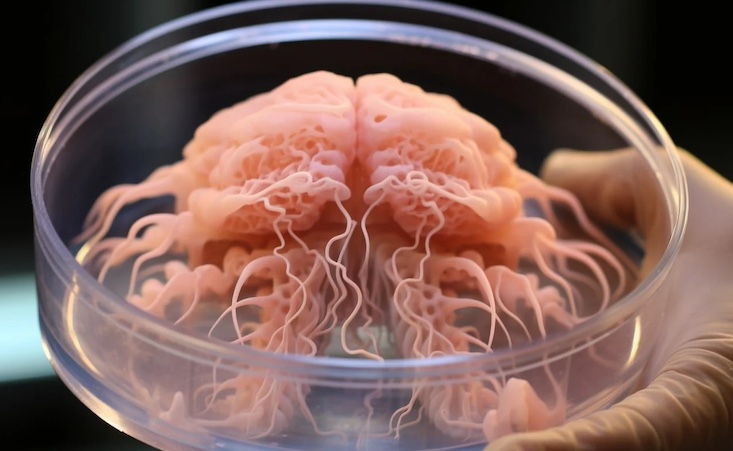
Scientists have achieved a groundbreaking feat by cultivating miniature brains in a laboratory setting, marking a significant advancement with profound implications for neuroscience. These 3D organs, comparable in size to a grain of rice, represent a triumph of scientific ingenuity and hold the potential to revolutionize our understanding of the human brain.
The development of these mini brains involved the utilization of human fetal brain tissue obtained from ethical sources. Researchers at the Princess Máxima Center for Pediatric Oncology in the Netherlands specifically targeted brain tissue from aborted fetuses within the gestational period of weeks 12 through 15. Contrary to previous methods that relied on breaking down tissues into single cells, this approach preserved the intricate cellular complexity of the developing brain.
One of the primary objectives behind this groundbreaking research was to model brain cancer, particularly its manifestation in children, with the ultimate goal of advancing treatment and potentially finding a cure. By introducing a cancer gene called TP53 using CRISPR-Cas9 gene-editing technology, researchers were able to simulate the formation of mini-tumors within the organoids. This innovative approach offers a promising avenue for studying the progression of brain cancer and exploring potential therapeutic interventions.
However, the ethical implications surrounding the use of fetal tissue in scientific research cannot be overlooked. While anonymous donors consented to the use of the tissue for research purposes only, questions arise regarding the moral boundaries of such practices. The delicate balance between scientific advancement and ethical considerations underscores the need for careful scrutiny and transparent dialogue within the scientific community and society at large.
Ultimately, the pursuit of scientific knowledge must be guided by a commitment to ethical principles and respect for human dignity. As researchers continue to push the boundaries of scientific exploration, it is imperative that they remain vigilant in upholding ethical standards and fostering responsible stewardship of scientific progress.
RELATED ARTICLES
- Researchers Warn Vaping is just as Harmful as Cigarettes
- Geert Wilders Fails to Secure Prime Minister Position Despite Major Win
- EU conservative leaders Meet in Romania for Reelection and Victory lap
- Eritrean Gangs Wage War on the Streets of Hague, Netherlands
- Scientists Warn Europe Could Enter Ice Age if Gulf Stream Collapses












sick